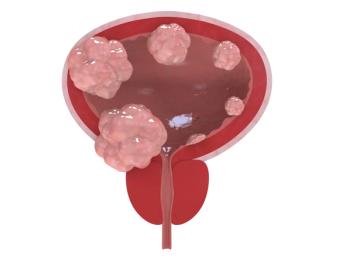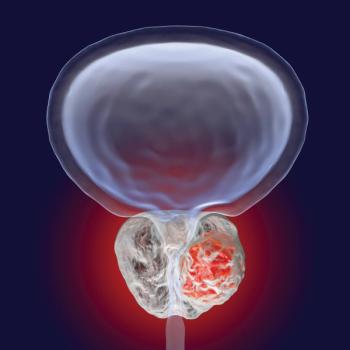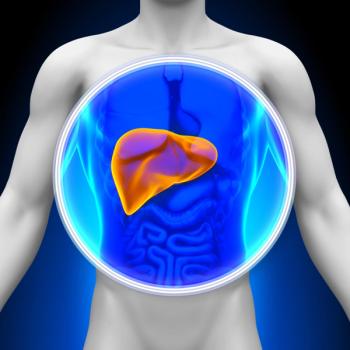
A disease-free survival and minimal residual disease event-free status was maintained for most patients with adjuvant osimertinib for EGFR-mutant NSCLC.

Your AI-Trained Oncology Knowledge Connection!


A disease-free survival and minimal residual disease event-free status was maintained for most patients with adjuvant osimertinib for EGFR-mutant NSCLC.

Identifying biologic mechanisms driving symptoms may be necessary to develop therapies that reduce symptom burden for patients with breast cancer.

A total of 32% of registered nurses and 29% of infusion nurses reported that educating patients regarding their diseases was challenging.

Tambiciclib was well tolerated in patients with acute myeloid leukemia with myelodysplastic-related changes, and no new safety signals were observed.

The phase 3 MIRAGE trial findings show that PROSTOX ultra was validated as a biomarker to predict genitourinary toxicity following SBRT.

The ESMO Precision Oncology Working Group recommendations can serve as guidance to define standards for MTBs to integrate precision oncology into practice.

Patients with ALK-positive NSCLC not vulnerable to neurological adverse effects or prone to weight issues, might benefit from treatment with lorlatinib.

Time to deterioration in physical functioning and role functioning was similar among those receiving belzutifan vs everolimus for renal cell carcinoma.

Postoperative complications and mortality after standard or postponed surgery for esophageal cancer after active surveillance were similar in both groups.

The prespecified number of events required to undergo analyses of the secondary end points, including PFS, OS, and DOR, have not been met.

All patients identified as low risk for sentinel lymph node positivity with the DecisionDx-Melanoma test had recurrence-free status after 3 years.

The phase 3 ROSELLA trial results assessing relacorilant/nab-paclitaxel in patients with platinum-resistant ovarian cancer will support an upcoming NDA.

Cytokine release syndrome events primarily occurred during step-up and the first full dosing cycle in patients with relapsed/refractory multiple myeloma.

No dose-limiting toxicities were seen with solnerstotug in patients with PD-L1–resistant tumors, and most adverse effects were grades 1/2 in severity.

Laparoscopic, histologic, and biomarker responses occurred at all dose levels of mitomycin treatment in patients with peritoneal metastases.

The safety profiles of osimertinib monotherapy and combination therapy were consistent with prior reports in EGFR-mutated non–small cell lung cancer.

Findings from the phase 3 CROWN trial evaluating lorlatinib in ALK-positive non–small cell lung cancer revealed a sustained PFS benefit with the agent.

A radiation oncologist discussed challenges related to the radiation oncology space as well as ongoing developments in the field highlighted at ACRO.

Intravenous olvi-vec demonstrated a manageable safety and tolerability profile consistent with previous trials evaluating the investigational agent.

Data from the phase 3 CABINET study support the approval of cabozantinib in patients with pancreatic and extra-pancreatic neuroendocrine tumors.

Modakafusp alfa induced the upregulation of the type 1 interferon gene signature score, and increased CD38 receptor density in CD-38–positive cells.

No grade 3 or higher treatment-related adverse effects or deaths were reported among those with non-muscle invasive bladder cancer in the BOND-003 trial.

Recipients of hematopoietic stem cell transplantation may benefit from psychosocial interventions and supportive care following their procedure.

Increased incidence and mortality rates for cervical cancer among rural women in the US may result from barriers to access to care.

The adverse effect profile was similar among patients with prostate cancer using NeuroSAFE-assisted RARP vs standard RARP.

Nivolumab-based therapies showed improved efficacy vs chemotherapy in hypermutated and Epstein-Barr virus–positive gastroesophageal tumors.

The complete response letter for camrelizumab/rivoceranib for patients with advanced HCC did not specify what deficiencies regulators found.

Elotuzumab in combination with pomalidomide, bortezomib, and dexamethasone was well tolerated in patients with relapsed/refractory multiple myeloma.

Evaluation of the 1-year overall survival data in the phase 3 ARES trial assessing MaaT013 in GVHD is expected to occur Q4 2025.

Certain subpopulations experienced significantly poorer outcomes in 2020, highlighting concerns regarding access to care.